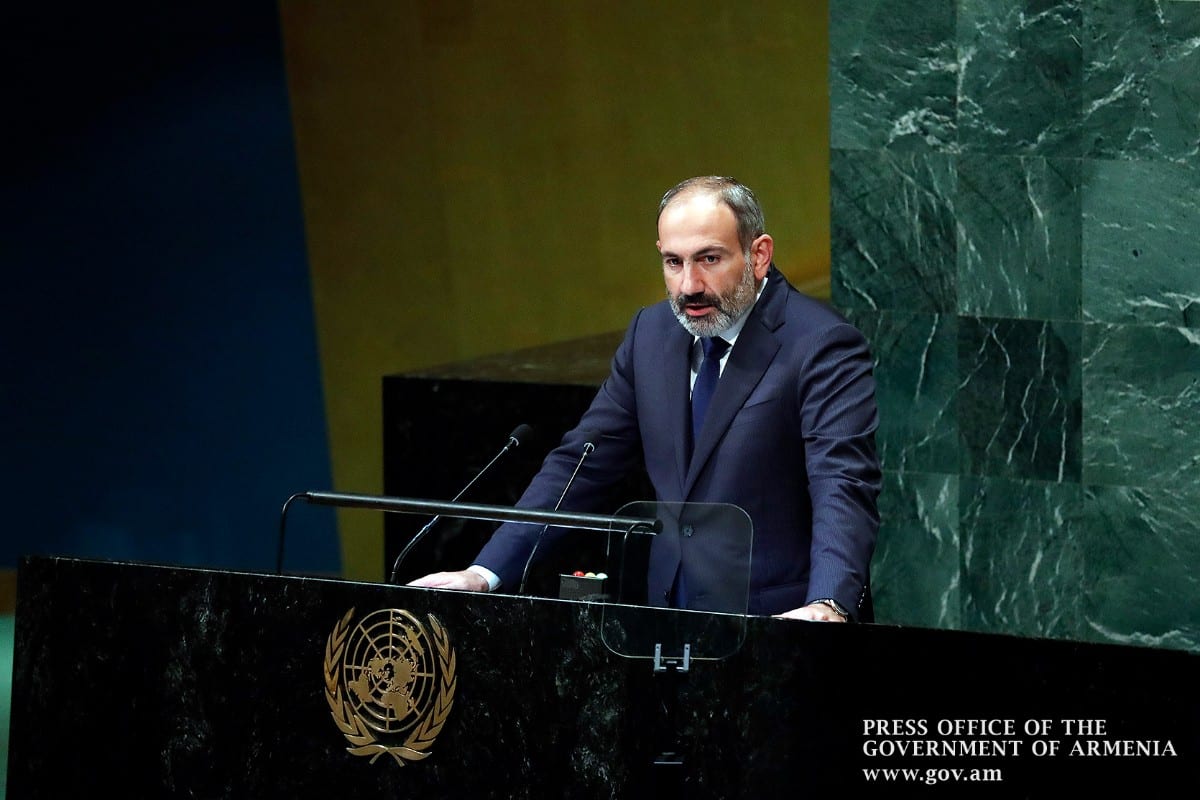 Courtesy: Armenian Government
Courtesy: Armenian Government
Nagorno-Karabakh: A Beacon for US-Russia Cooperation?
Following the rise of Prime Minister Nikol Pashinyan in the wake of the Velvet Revolution, Yerevan and Baku publicly quarreled over military exercises, the Armenian occupation, and the role of Nagorno-Kharabakh’s regime in the peace process. In the beginning of October, the Azerbaijani Defense Ministry claimed Armenian forces violated along the 1994 ceasefire along the line of contact between Armenian and Azerbaijani forces 34 times in 24 hours. This week, the OSCE announced it would monitor the border between Azerbaijan and Armenia. The ceasefire violations raise questions over a potential re-heat up of the conflict and the challenges to its solution. Due to the lack of a final resolution after 30 years of the Nagorno-Karabakh conflict, Western Analysts tend to blame Russia’s role in the conflict and lump Nagorno-Karabakh with the situations in Ukraine, Georgia and Moldova.
Despite this blame, the West should continue to support the OSCE Minsk Group’s work and subsequently Russia’s involvement for the following reasons:
- The three co-chairs of the OSCE Minsk Group—Russia, the United States, and France—all agree that there should be a peaceful resolution to the conflict.
- Armenia and Azerbaijan both seek active ties with Russia beyond the conflict and express interest in solving the conflict within the OSCE Minsk Group under Russian leadership. This increases the chances that both parties will abide by any established agreement.
- Nagorno-Karabakh is an area in which the West is not willing to invest significant resources. A non-military resolution in the Southern Caucasus means one less issue to worry about in comparison to Ukraine and Georgia.
Russia, the United States, and France, all support the OSCE Minsk Group as a mediator to reach a compromise. They also agree that the main parties to the conflict should take responsibility for creating the possible conditions for such a compromise. In fact, the United States praised Russia as an excellent partner in cooperation. During the 2000s, Russia, the U.S., and France outlined the Madrid principles for Armenia and Azerbaijan to draft peace agreements.
For the United States and Europe, a peaceful resolution will help protect interests in the region. As the US and EU wish to support the diversification of Europe’s energy supply, preventing an open conflict will reduce the risk to key oil and gas pipelines in the region. For Russia, a desire to maintain influence in its near abroad motivates it to want solid relations with both Armenia and Azerbaijan. Heightened military confrontation could lead Russia into conflict with Azerbaijan due to Armenia’s involvement in the CSTO.
Seeing as Armenia and Azerbaijan both agree to the OSCE Minsk Group framework to actively solve the conflict, Washington would act against its own interests if it were to reject Russia’s role in the Minsk Group. Armenia, Azerbaijan, and Russia have a long line of intermingled history and inter-dependence, tied with personal familiarity. Sergey Markedonov, Director of the Department for Problems of Ethnic Relations at the Institute for Political and Military Analysis, proposed that demeaning Russia’s diplomatic mission in the conflict could backfire by block diplomatic channels that could otherwise benefit Washington’s parallel efforts through the OSCE. Even if Russia were able to use its role as mediator to singlehandedly create obstacles to peace, the OSCE Minsk Group allows Washington and France veto power over any resolution.
Considering America’s limited resources, and that U.S. efforts in the region are focused more heavily on Ukraine and Georgia, operating through the OSCE Minsk Group provides less-taxing effective mechanism to influence the actions of the mediators involved in this conflict. Apart from the OSCE Minsk Group, there are no practical steps towards a solution to Nagorno-Karabakh from organizations such as NATO or the EU.
Given Russia’s relationships with the feuding parties, and its similar policy positions to the U.S. and France, it presently plays a key part in de-escalation in Nagorno-Karabakh. U.S. involvement in the OSCE Minsk Group allows it to check on Russia’s intentions as France monitors them as a representative of the European Union. In conclusion, Nagorno-Karabakh is a viable cooperation opportunity in a time where US-Russia relations are at a low.





